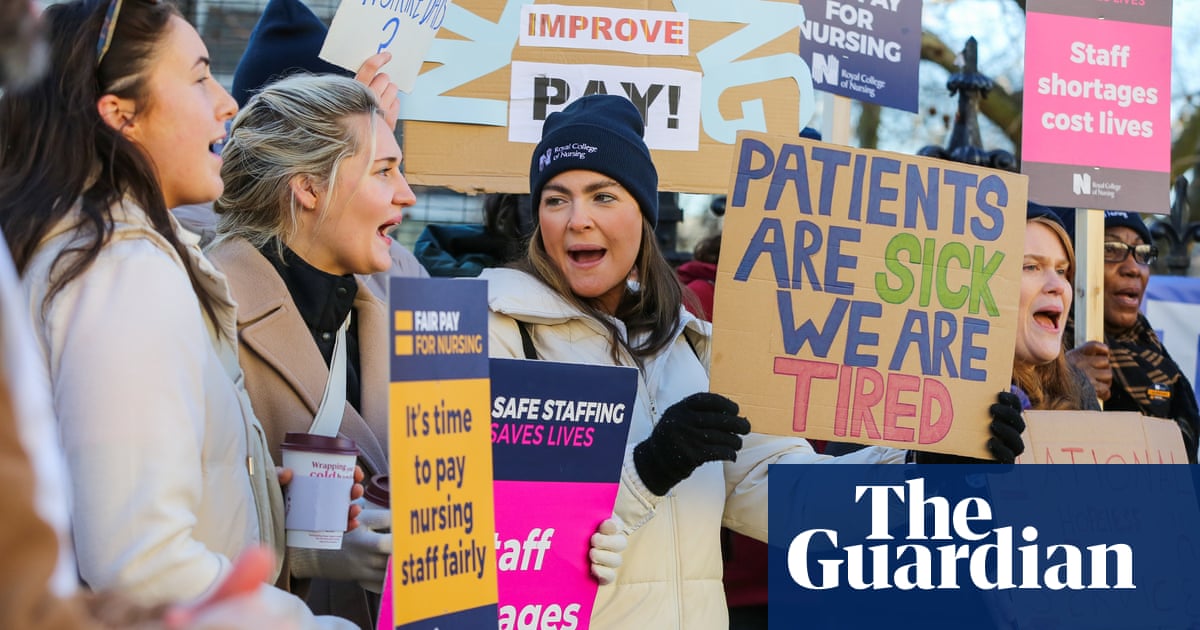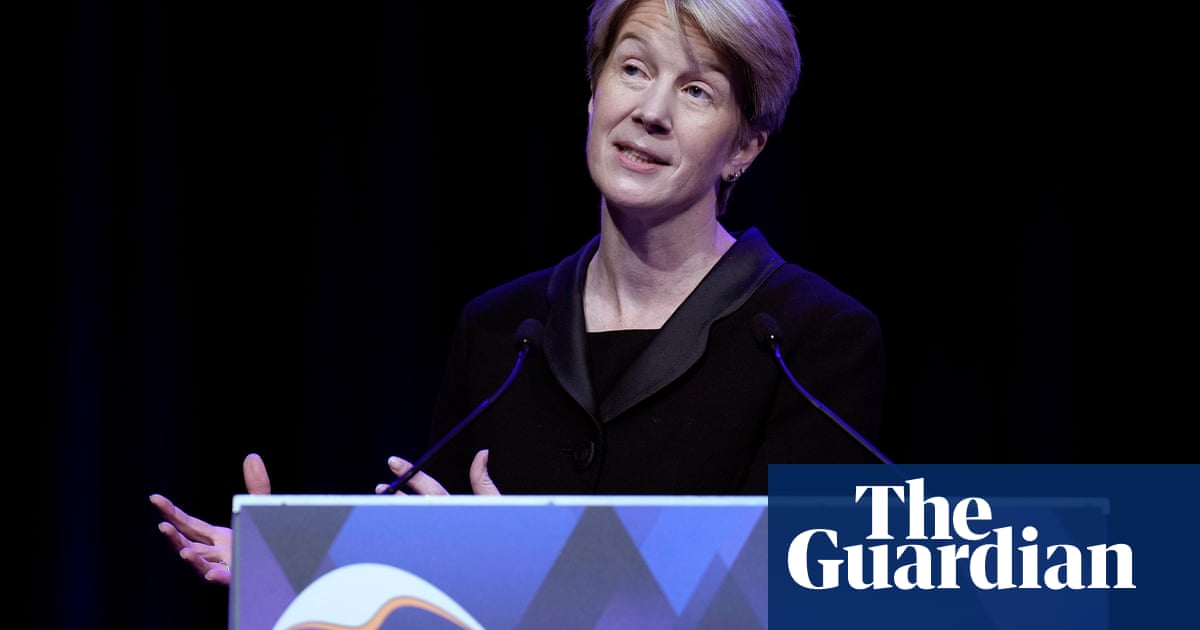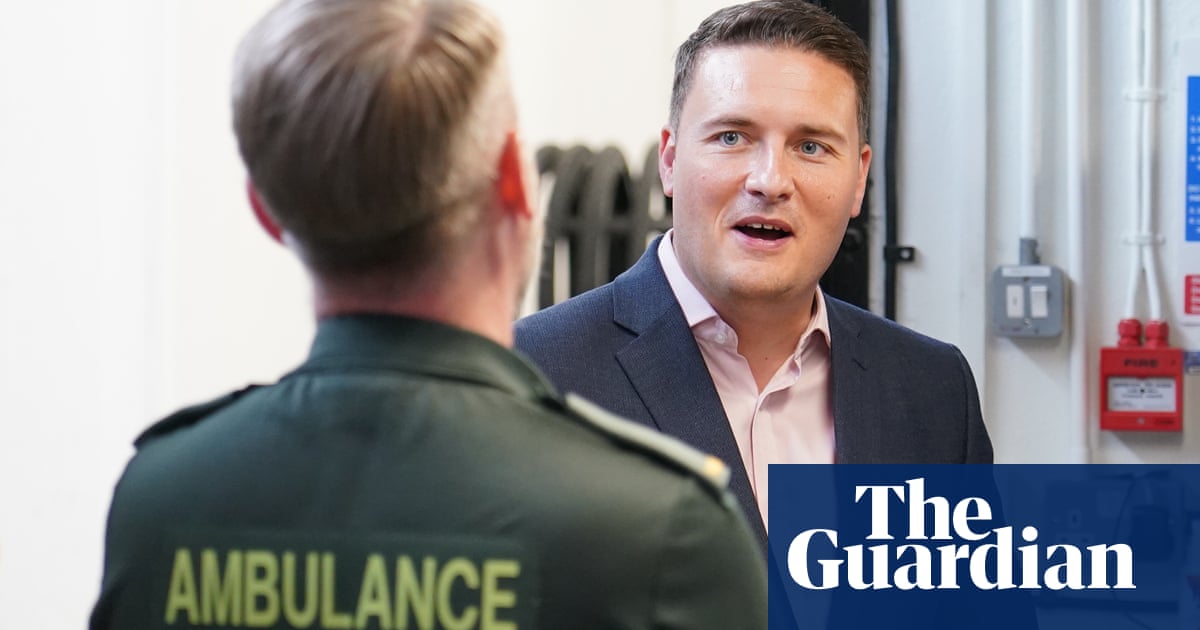
Frontline NHS services are already under as much pressure as they usually face in the winter, due to lack of staff and hospitals’ inability to discharge patients, the health service’s boss said on Wednesday.
In a speech to senior health service managers, NHS England’s chief executive, Amanda Pritchard, admitted that cuts to the number of beds had gone too far. But she blamed difficulties in social care for hospitals being left unable to admit the growing number of seriously ill people needing care urgently and patients being left stranded in the back of ambulances outside A&E units.
However, the health secretary, Sajid Javid, warned that there would be “no sort of quick cure” for the increasingly acute problems facing NHS urgent and emergency care services. And he made clear that the service would have to tackle its many challenges without any fresh cash boost.
“Frankly the situation we see at the moment in emergency departments and ambulance services is as challenging as any winter before the pandemic,” Pritchard told delegates at the NHS ConfedExpo conference in Liverpool.
While the growing need for care is a key cause of pressure on the NHS, “demand isn’t the whole story”. But she pinpointed the inadequacy of social care provision as the main reason why hospitals have so many patients they cannot discharge, despite them being medically fit to leave, and therefore why so many patients have to wait so long to get a bed.
“You can trace the line from delayed discharges, to A&E crowding, all the way through to slower ambulance response times,” Pritchard said.
The NHS has for many years had fewer hospital beds than comparable countries, which in some respects shows how efficient it is, she added. But hospitals’ struggles shows that “we have passed the point at which that efficiency actually becomes inefficient”.
The service has already set up 53 “virtual wards” – in which patients are treated at home, to free up hospital beds – but those initiatives are not enough on their own, she added.
Last month Mark Docherty, the nursing director of the West Midlands ambulance service, said that patients are “dying every day” because so many ambulances are tied up outside hospitals. Serious patient safety incidents caused by delays have quadrupled over the past year, he added.
In a tough message to delegates, Javid told them to make better use of the record funding that the NHS is receiving, not expect any increase and instead modernise how it operates.
“The answer to all the challenges we face in healthcare cannot always be more money. I think it’s essential that we improve productivity.
“I don’t want my children, anyone’s children, to grow up in a country where more than half of public spending is taken up with healthcare at the expense of everything from education to housing.”
Urging the NHS to undertake major reform, he said: “It is possible to love the NHS and still demand change.” The service must “reduce demand through prevention, early diagnosis and more effective care” and “improved use of capital, skills, management, data and innovative models of care”.
Before the conference opened Matthew Taylor, the chief executive of the NHS Confederation, had blamed the service’s increasing inability to meet waiting times for care on underfunding during the 12 years since the Conservatives came to power in 2010 and accused Javid of “manager bashing”.
“When you’ve been in government 12 years, to acknowledge the scale of the problems which now exist, problems which clearly reflect decisions made across those 12 years, is a hard thing to do politically,” said Taylor, a former head of the No 10 policy under Tony Blair.












